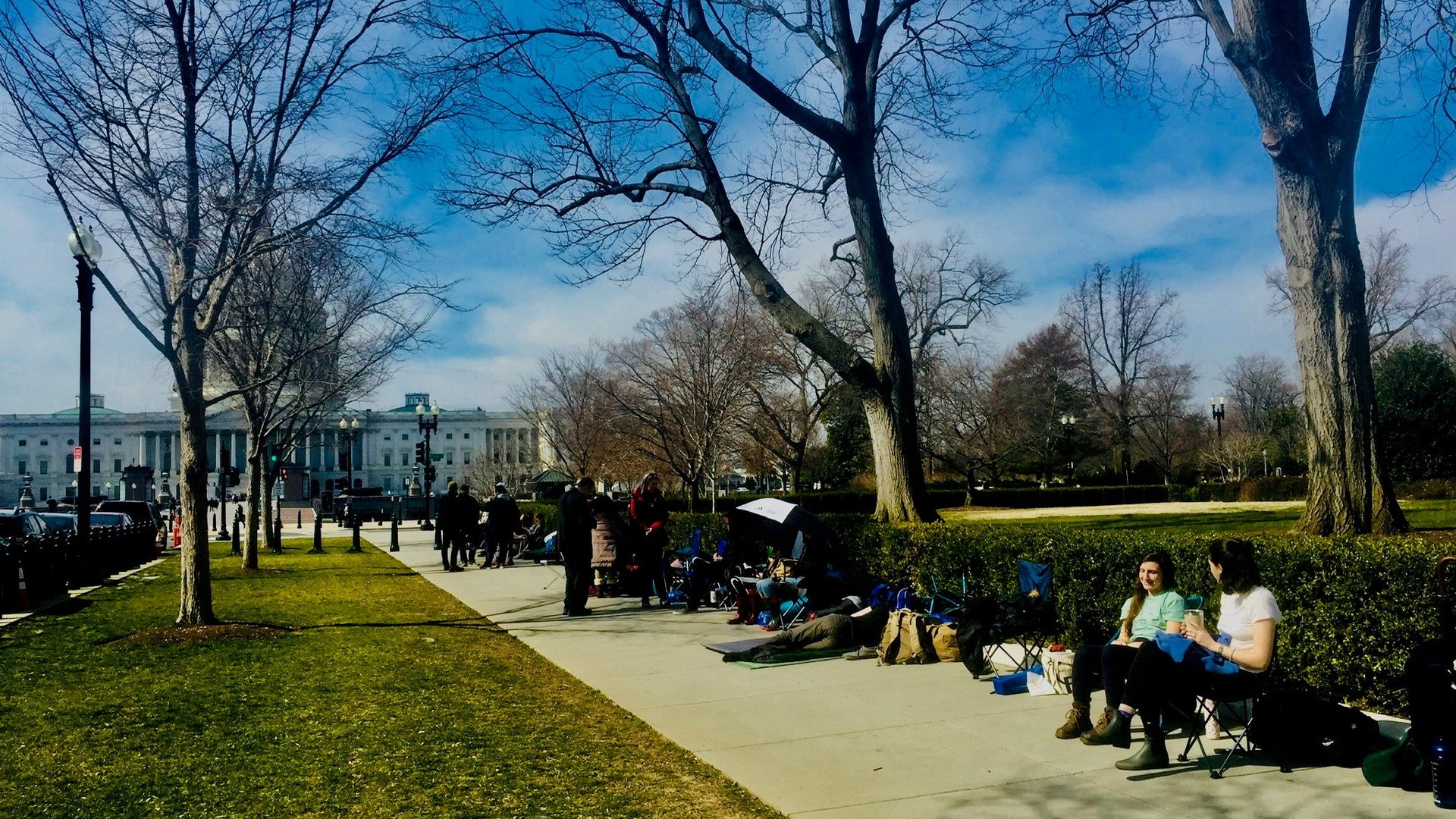The hottest seat in Washington, DC this week is at the US Supreme Court
You don’t always need to camp for days on the sidewalk to grab a seat at a US Supreme Court hearing. But this week, this winter, is different.


You don’t always need to camp for days on the sidewalk to grab a seat at a US Supreme Court hearing. But this week, this winter, is different.
On March 4 the justices are hearing arguments in one of the most anticipated cases of the term—June Medical Services v. Russo. The matter stems from a Louisiana law ostensibly designed to protect women’s health, but with the practical effect of limiting abortion access.
The high court already ruled in 2016 that a similar law out of Texas, which required doctors at clinics to be associated with local hospitals, was unconstitutional because it unduly burdened women without advancing a legitimate government interest. But that was before justices Neil Gorsuch and Brett Kavanaugh were appointed by US president Donald Trump.
Some conservatives hope the junior justices will take this opportunity to approve the Louisiana law, helping to unravel abortion protections and precedent.
“This case presents a pivotal opportunity,” Louisiana representative Mike Johnson said today in a statement for Americans United for Life, a conservative advocacy group that represented more than 200 Republican lawmakers in an amicus brief to the court. “I am very confident in the merits of what Louisiana is presenting, and I expect the Court will rule in our favor.”
Designed for now?
It is this certainty that worries pro-choice advocates.
The Center for Reproductive Rights argues that if the Louisiana law goes into effect, two of three abortion clinics in the state will close. That leaves one million women of reproductive age with one abortion provider. This is precisely the kind of undue burden the court disapproved when it ruled on the Texas law not so long ago.
But 2016 already feels like another age. Though the justices are bound by the court’s precedent on abortion, just like on other issues, whether or not hotly disputed, the conservative majority could theoretically approve Louisiana’s abortion law anyway.
The state had argued that its case is factually distinct from the matter out of Texas. The Fifth Circuit Court of Appeals agreed in 2018. If they were so inclined, the five conservative jurists on the Supreme Court could use this same basis for a decision that erodes Roe v. Wade, the 1973 case legalizing abortion.
Many progressives believe that the Louisiana matter was brought for just this reason (a belief supported by the Americans United for Life brief, which argued that Roe should be overruled). They also suspect that the court agreed to review this case to advance a greater conservative project to remake America.
Historically speaking
Emily Bazelon at the New York Times argued last week that in the aftermath of Roe, conservatives have concocted a whole legal philosophy—originalism—to justify judicial activism (which they claim to hate) and promote policy preferences disguised as principle. By masking political decisions behind invented legal “traditions” they can make their choices look like historically-rooted law, she says.
Originalists purport to follow a strict interpretation of the Constitution as it was understood by the framers, rather than being swayed by contemporary social considerations, like progressives. Yet that ignores the critical fact that laws exist to govern present lives and the safe assumption that conservatives have agendas to advance or curb, just like progressives do. Bazelon explains:
The idea of an evolving Constitution, built from the language of the framers but not limited to their understanding of it, became a concept associated with liberals. Yet sometimes it has been conservatives who leave the text and the framers behind. In the 1970s, the conservatives on the court began to rule that the First Amendment protected commercial speech, like advertisements, even though it had never been understood that way before. The doctrine remains a tenet of the right.
In other words, just because justices say they follow a particular philosophy that ensures their decisions are impartial, not based on personal preferences but the dictates of the law as it was understood by those who wrote the founding legal document, doesn’t make it so. And just because they are bound by precedent, and claim to respect it, doesn’t mean they will.
An amicus brief from legal scholars, including Lee Bollinger of Columbia University and Laurence Tribe from Harvard, argues that there’s no real difference between the Louisiana and Texas cases and that the Fifth Circuit’s decision masks “recalcitrance” behind alleged factual considerations. The outcome here should be clear, they say, urging the justices to rein in lower courts who fail to follow the law and arguing that the implications extend far beyond the abortion context.
Cherry blossoms and competing ideologies
Tensions are running high in Washington, DC. Already prospective audience members are lining the block on East Capitol street, claiming space in anticipation of the crowds expected at the nation’s highest tribunal.
They are young and old. Male and female. Armed with food and blankets. Luckily for them, the weather’s been warm and sunny, birds are singing, the air smells of spring, and cherry blossoms are blooming on the court lawns (should they find someone to guard their spots and feel inclined to take a walk around the corner).
But winter isn’t over, not literally or metaphorically. Local meteorologists promise a cold front, court commentators are forecasting legal storms, and activists on the left and right are planning competing rallies on the courthouse steps while the hearing takes place inside. If anything, things will only get more tense as all await a decision by term’s end in late June.